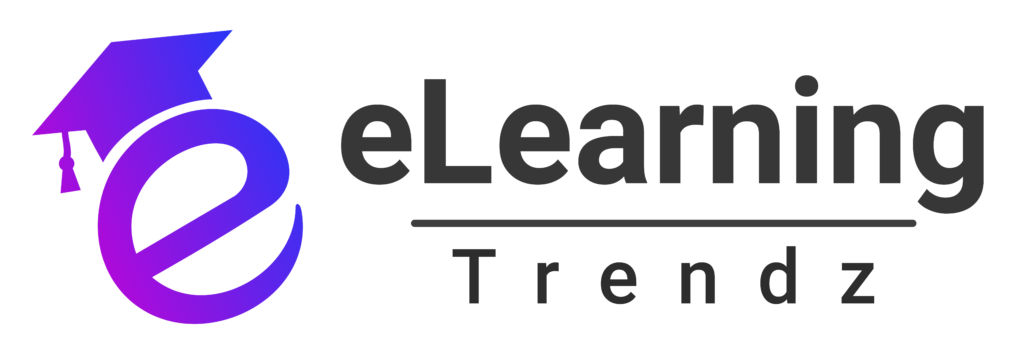In the fast-evolving world of corporate training, the integration of generative AI into Learning Management Systems (LMS) is a game-changer. From personalized learning content AI to adaptive learning content generation, AI is streamlining the entire content creation process. This article explores how AI is revolutionizing LMS content creation, making it more effective, adaptive, and scalable. Let’s dive into how generative AI is reshaping the future of eLearning development, course creation, and instructional design.
1. The Role of Generative AI in LMS Content Creation
Generative AI is a powerful tool that automates the creation of learning materials. By using large language models (LLMs), organizations can generate content that is not only relevant but tailored to the specific needs of their workforce. AI in LMS content creation goes beyond traditional eLearning methods by incorporating elements like adaptive learning and AI course creation, enabling organizations to deliver personalized, scalable training programs.
1.1 Personalized Learning with AI
Personalized learning content AI is one of the biggest advantages of integrating generative AI into LMS. AI algorithms analyze learner data—such as past performance, engagement levels, and learning preferences—to create tailored content that addresses individual needs. This approach ensures that each learner receives the right materials at the right time, improving engagement and knowledge retention.
1.2 Adaptive Learning Content Generation
AI-driven adaptive learning systems adjust the content based on learner responses, providing a dynamic and interactive learning experience. Adaptive learning content generation enables the LMS to offer a continuously evolving curriculum, ensuring that learners are constantly challenged and engaged without feeling overwhelmed.
2. Streamlining Learning Content Creation with AI
Content development in LMS traditionally involved a lot of manual effort from instructional designers. However, with AI for instructional design, this process has become more efficient and streamlined. AI-powered tools automatically generate quizzes, assessments, and learning paths based on the course objectives and learner profiles.
2.1 Automating Quiz Generation in LMS
Automated quiz generation in LMS is a breakthrough feature enabled by generative AI. By analyzing course content, AI can create quizzes that assess learner comprehension at various stages of the training process. These quizzes are personalized based on the learner’s progress and provide instant feedback, improving the learning experience.
2.2 AI for Instructional Design and Content Development
AI for instructional design helps L&D professionals save time by automating repetitive tasks like content creation and assessment generation. AI tools assist in structuring course content, suggesting interactive elements like simulations and case studies, and even identifying gaps in the existing material. This allows instructional designers to focus more on strategic content development while the AI handles the heavy lifting.
3. The Future of LMS Content Creation with AI
Looking ahead, the future of LMS content creation is undeniably tied to AI. With the rise of AI-driven tools, organizations can expect to see even more personalized, adaptive, and scalable training programs. Let’s explore how AI is shaping the future of LMS content in corporate training.
3.1 The Impact on Corporate Training Content
AI in corporate training content is transforming how businesses deliver learning programs. AI systems can now predict skill gaps, recommend relevant content, and even create custom learning paths that align with business goals. This level of personalization ensures that employees receive the most relevant training, enhancing overall performance.
3.2 AI and the Rise of Self-Directed Learning
With the help of AI, learners can access customized learning paths that suit their individual needs, making self-directed learning more feasible. AI-powered LMS platforms guide employees through their learning journey by recommending resources based on their progress and preferences. This self-paced learning model empowers employees to take ownership of their development while ensuring they have the necessary support along the way.
4. AI-Powered Tools Driving eLearning Development
eLearning development AI tools are becoming increasingly popular in the corporate sector, providing organizations with scalable solutions to create high-quality learning materials. These tools can quickly generate interactive eLearning courses, simulations, and multimedia content that engages employees and improves their learning outcomes.
4.1 Speed and Scalability in Content Development
AI-powered eLearning development tools significantly speed up the content creation process, allowing companies to roll out training programs faster. These tools can create interactive lessons, quizzes, and learning assessments in minutes, providing a competitive edge for companies looking to deliver timely training at scale.
4.2 Enhancing Engagement with AI-Generated Content
AI-generated content can be designed to be more engaging and relevant to the learner. By analyzing past interactions and performance, AI can predict what content will be most effective in driving engagement and retention. Interactive videos, real-time quizzes, and adaptive learning elements are just a few examples of how AI enhances the learning experience.
5. Key Benefits of Generative AI in LMS Content Creation
The integration of generative AI into LMS content creation brings several key benefits:
- Personalization: AI can create learning paths and content that cater to individual learning styles, improving engagement and retention.
- Efficiency: AI automates time-consuming tasks like content generation, assessment creation, and learner tracking, freeing up time for instructional designers.
- Scalability: AI allows organizations to scale their training programs to accommodate a larger workforce without sacrificing quality.
- Continuous Improvement: AI can analyze learner performance and make real-time adjustments to learning content, ensuring that the material is always relevant and effective.
6. Conclusion
Generative AI is undeniably reshaping LMS content creation by offering solutions that are personalized, scalable, and efficient. With AI tools automating much of the content creation process, organizations can focus more on strategic learning objectives and employee development. From AI course creation to adaptive learning content generation, the future of LMS content is brighter than ever before, driven by the power of AI. By embracing these advancements, businesses can ensure their training programs are aligned with the needs of modern learners and prepared for the future of corporate training.














